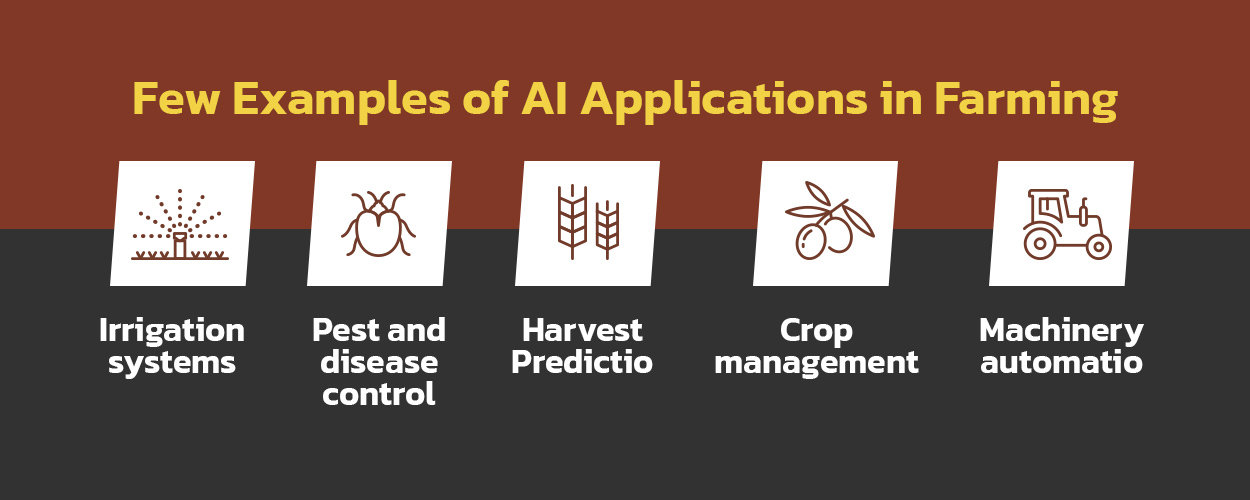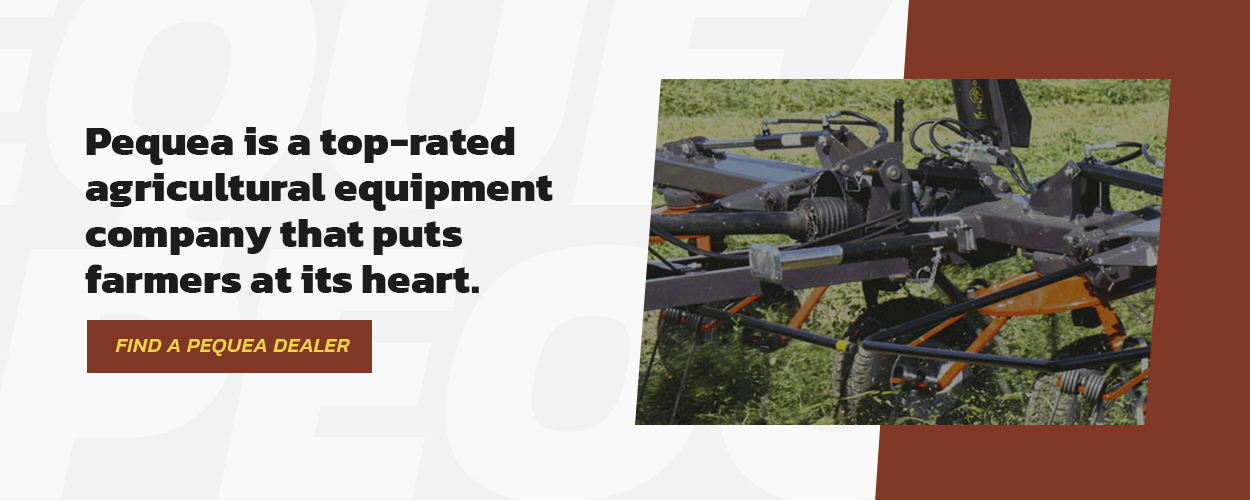Understanding How Agriculture Is Leveraging AI

The agricultural industry began approximately 13,000 years ago, signifying a shift from gathering food in the wild to cultivating farmland and harvesting crops. While these early farmers relied on simple hand tools to carry out their farming tasks, the need for more effective agricultural practices has fueled technology advancements.
Tractors, plows and harvesters are some of the earliest examples of agricultural technology, but these developments didn't stop there. Artificial intelligence (AI) has helped farmers monitor soil fertility, optimize irrigation and manage pest threats to ensure even better crop production.
Learn how AI has revolutionized traditional farming techniques, helping farmers cut costs and enhance agricultural equipment manufacturing processes.
The Arrival of Artificial Intelligence in Agriculture
AI has impacted all sectors significantly, and the agricultural industry is no different. While there will always be a need for workers with boots-on-the-ground experience, there's no denying the competitive advantages artificial intelligence offers agricultural businesses.
AI as a Catalyst for Modernizing Traditional Farming Techniques
According to the United Nations, the global population will reach 9.8 billion in 2050, increasing pressure to ensure adequate food production. Traditional farming techniques need to evolve to offer greater food security, and the impact of AI on food production is unrivaled.
Here are just a few examples of AI applications in farming that result in optimal resource use and higher yields:
- Irrigation systems: Agricultural irrigation accounts for approximately 70% of the world's water use. As water is a scarce resource, AI-powered irrigation systems track environmental conditions to maximize water usage.
- Pest and disease control: Farmland can span hundreds of acres, making it challenging for workers to pinpoint pest and disease issues before they become bigger problems. Artificial intelligence helps streamline this process with advanced image recognition, enabling farmers to detect and react to risks quickly.
- Harvest prediction: Crop yields vary from year to year, but AI provides ongoing environmental data to ensure an accurate harvest prediction so farmers can plan accordingly.
- Crop management: Cameras with AI functionality provide satellite imagery to help farmers track crop health and optimize fertilizer, nutrient and herbicide levels.
- Machinery automation: AI equipment helps to seed crops and harvest them with greater efficiency, helping farmers meet supplier timelines.
AI's Significant Impact on Agricultural Equipment Manufacturing
The very first tractors, harvesters, balers and plows were once the peak of farming technology — now AI is taking agricultural equipment to the next level. An article published by Bloomberg Law highlights how AI equipment will significantly improve worker safety, reduce labor costs and improve efficiency on farms. For example, instead of workers spending hours toiling in the hot sun and increasing their risk of skin cancer, automated equipment can do these tasks more quickly and cost-effectively.
Approximately 50 companies worldwide currently manufacture AI equipment for the agricultural industry, but this number is likely to grow as more farmers realize the cost, safety and time advantages.
The Potential of AI in Reducing the Cost of Farming
Farms — like any other business — need to make a profit. Here are a few examples of how artificial intelligence in agriculture offers farmers an effective way to save money in the long term.
- Improved resource management: Fertilizers, water and herbicides dig into farmers' profits. Managing these resources more effectively, such as only watering crops when needed or targeting a specific area with herbicide, helps to reduce expenditure.
- Reduced labor costs: AI-powered machinery — such as driverless tractors and automated weed sprayers — reduce the need for workers, impacting labor costs.
- Increased yields: The more crops you produce, the more you sell. Weather conditions may cause 90% of crop damage, but using predictive weather AI tools could prevent 25% of these losses.
Navigating the Challenges in AI Implementation in Agriculture
Artificial intelligence offers a wealth of benefits to the agricultural industry, but implementing this technology has its challenges — especially at the onset. Learn about potential obstacles farmers face when adopting AI tools, as well as practical solutions.
Many farmers are slow to integrate AI tools into their farming practices due to these barriers:
- Lack of technical knowledge: While the term "artificial intelligence" is widely used, many people outside of the computer science industry have little knowledge about these tools. As most farmers are often up with the sun and working the fields until dusk, they don't have much time in a workday to learn how to use this technology.
- Initial investment is high: AI offers the agricultural industry many ways to cut costs, but most farmers will only experience these benefits after a few years. Overheads — such as paying workers, machinery repairs and farm insurance — may make it challenging to afford the initial expense of implementing AI.
- Resistance to change: Some farms have been in a family's name for years and continue to thrive despite inflation. This can trigger a "don't fix what's not broken" mentality, which prevents AI integration.
- Privacy concerns: AI tools rely on data input, and potential breaches may mean exposing this valuable information to competitors.
- Prolonged implementation: The old adage is true — time is money. As AI tools take a few months to implement, this can be a deterrent for farmers who need results now.
Education is the key to overcoming most of these challenges in AI implementation. Governments can do more to inform farmers of the impact of AI on food production and how it can lead to more sustainable farming practices. In addition, AI businesses need to highlight the benefits of their products more effectively so farmers feel they are worth the cost and time investment. They can also offer aftersales support to help integrate tools seamlessly.
Farmers may view the cost of implementing AI as an insurmountable barrier, but various solutions exist. More governments offer agricultural grants to ensure food security, while many private investors view AI investments as the future. Farmers can also start small — by integrating one AI tool at a time, they can advance practices while working within a budget.
About Pequea, A Skibo Company
Pequea is a top-rated agricultural equipment company that puts farmers at its heart. They understand the daily challenges that impact your bottom line and are intent on providing innovative agricultural products to optimize your farming operations.
While the mark of a good farmer will always be their strong work ethic, AI offers a way to maximize your farming efforts and boost your profits. Pequea is dedicated to harnessing AI to provide revolutionary agricultural equipment that sets you apart from your competitors. For more information, contact a dealer near you today and find the best equipment for your needs. You're also welcome to call us at (717) 354-4343 with any questions you might have — we are happy to help!

